By Greta Suiter, Manuscripts Archivist, Ohio University Libraries
Didn’t I write and tell you about the enclosed? (Irving Berlin)? He was up here the day before Christmas for dinner and also went to the hospital. Hope I’ll get a chance to see his show when it comes. Never thought in the fall of 1942 that I’d have to go clear to New Guinea to see it.
-Phyllis Peirce letter home 7 January 1945
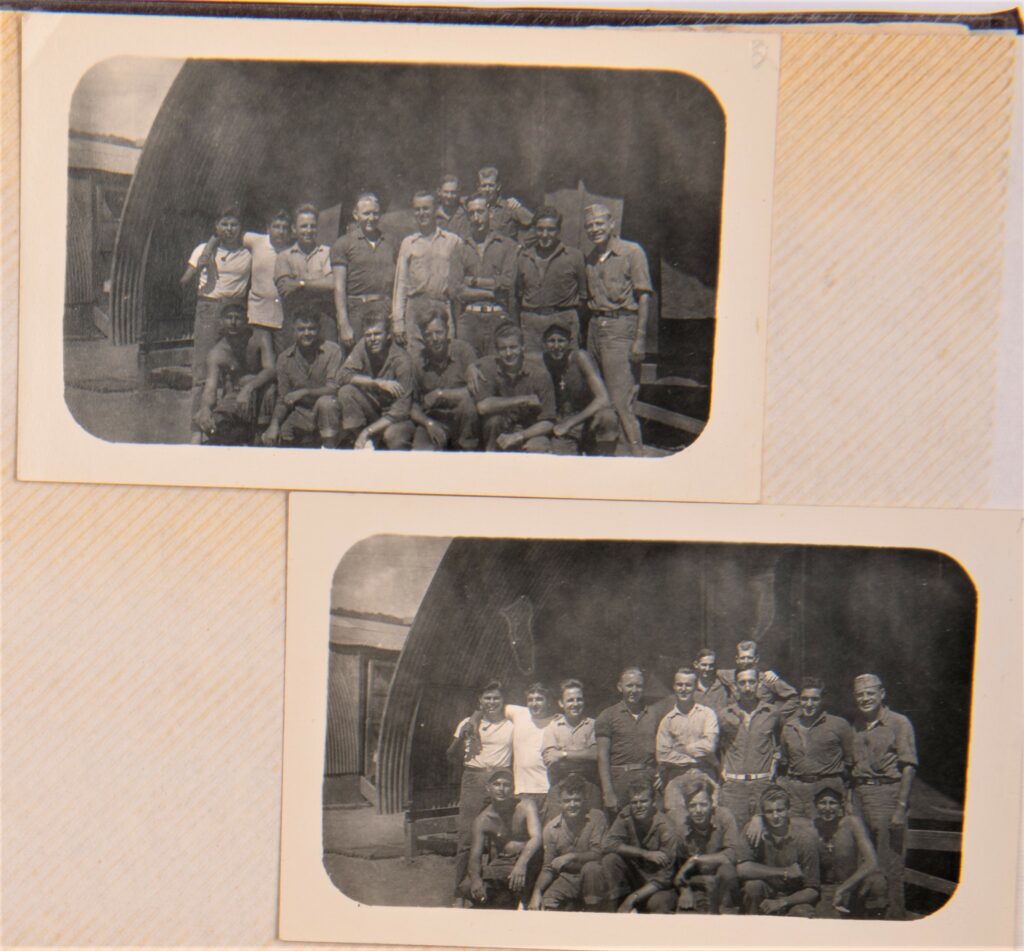
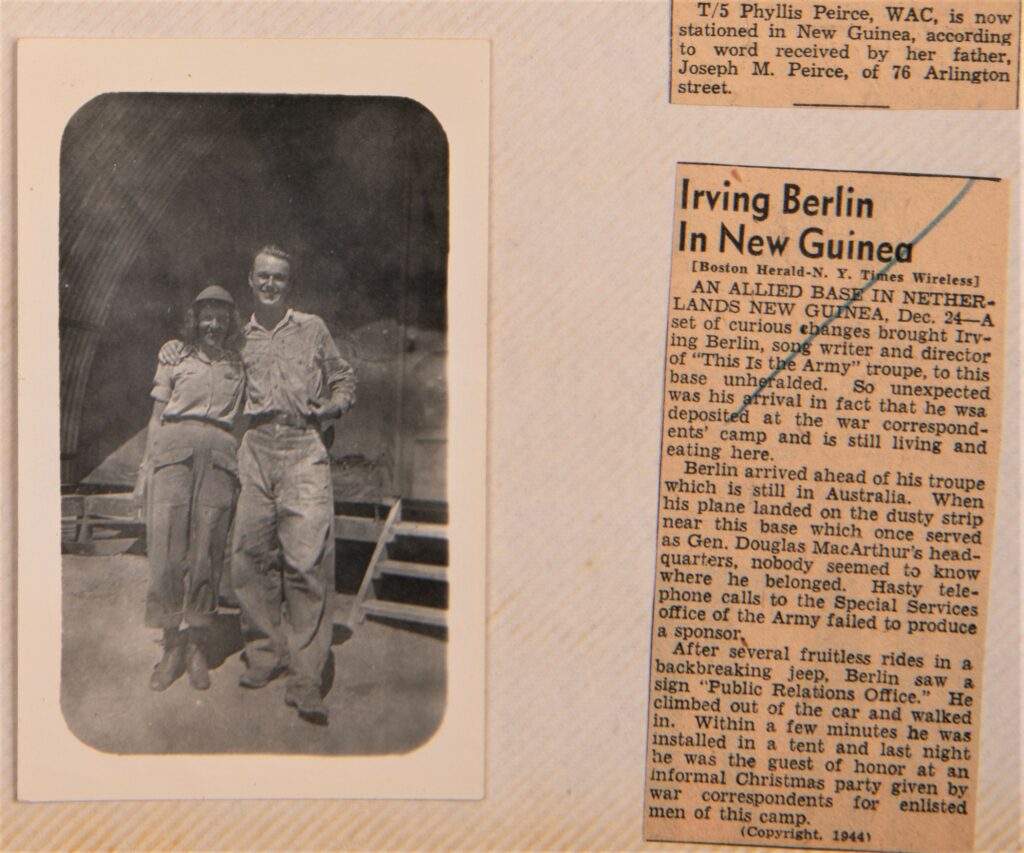
Phyllis Peirce joined the Women’s Auxiliary Army Corps (WAAC later became Women’s Army Corps (WAC)) in the fall of 1942. From 1942 to 1944 she served stateside, training and working in Florida, Oklahoma, Washington D.C., and Georgia. In the fall of 1944 she left the continental United States for the southwest Pacific and worked in Dutch New Guinea and Luzon in the Philippines. Her World War II collection contains scrapbooks, correspondence, photographs, programs and ephemera, and an oral history.
Contained in the letters she wrote home while in the Pacific are mentions of movies, books, and magazines that she was able to watch and read. While she felt a world away from her hometown of Fitchburg, Massachusetts, she could still enjoy American culture and music through movies, magazines, and the 7th Fleet band stationed near her.
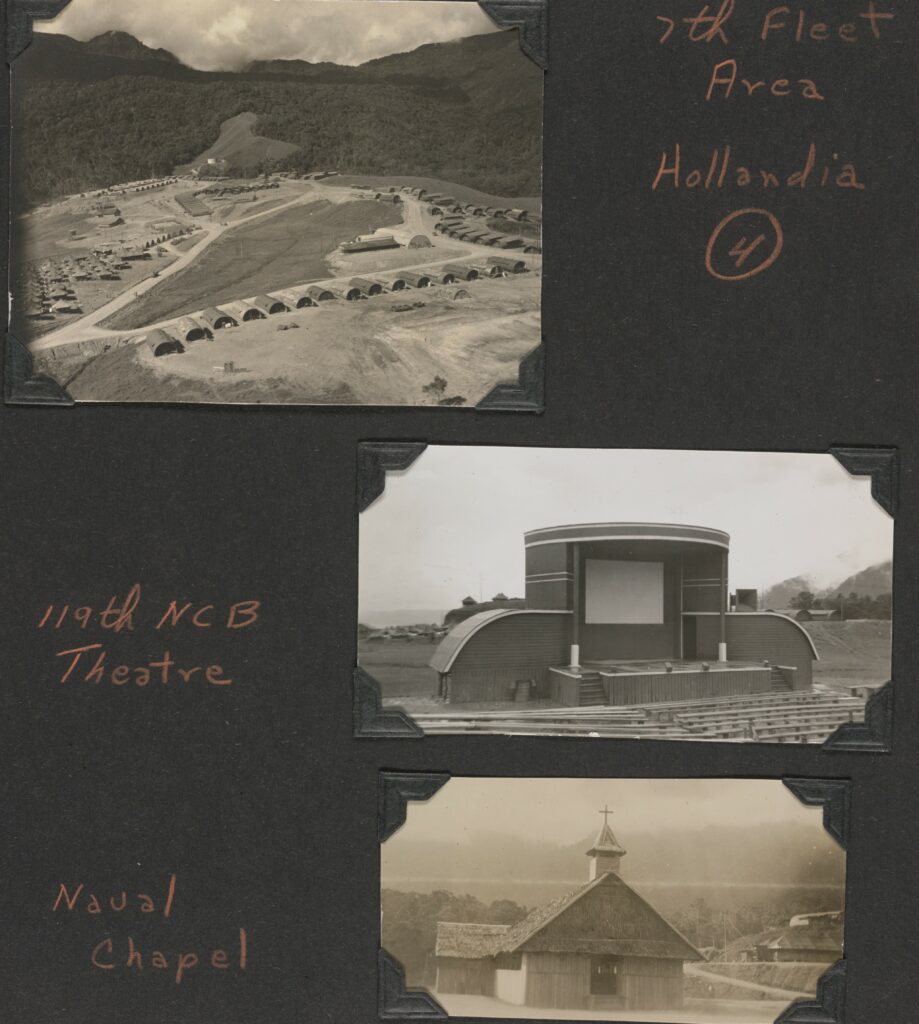
Below are some examples of her reactions to popular culture she saw and read while overseas.
- “I finally got to see ‘Mrs. Parkington’ this week and was very disappointed in it. I’m sure you would be also if you have read the book for the latter was wonderful. Believe Cindy wrote that she didn’t like the movie, tho’ Mary loved it.” – 14 January 1945
- “Went to see ‘Keys of the Kingdom’ Sat night, but as usual I was too sleepy to stay and see the end, so left about 11:45.” – 24 February 1945
- “I went to the movie – ‘Meet me in St. Louis.’ It was very good and colorful.” – 4 March 1945
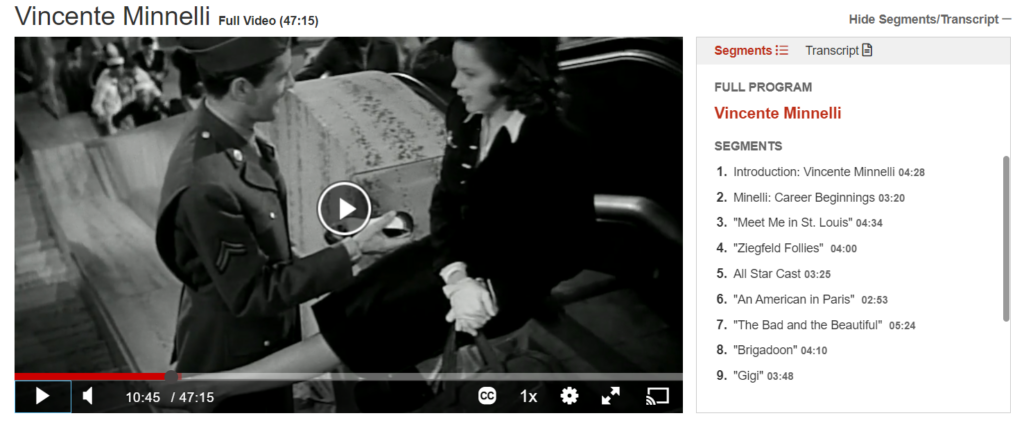
- “Sat. night went up to the movie in our Rec. Hall, ‘The Thin Man Goes Home.’ It was very good, silly but entertaining.” – 11 March 1945
In a letter from Sunday, April 15, 1945 Peirce caught her family up on a lot of entertainment news from the past week:
- “Tues night a group of us went to see ‘Mutiny on the Bounty.’ Pop, I thought of you when I saw it and remembered how interested you were in that section of the world. Like it as much as the first time.”
- “Friday night a group of us went to another outdoor theater to see the stage show ‘Oklahoma.’ It was very good, a lot thought it compared favorably with the one in the states. It rained very hard for a while, but we had fun.”

- “This morning I went down to the 7th Fleet chapel. They (the string quartet) played Handle’s ‘Largo’ especially for me. Also one of the fellows I knows song. It was a very nice service. The chaplain read the 93rd Psalm and while he did they played a part of ‘Finlandia.’ The chaplain likes a lot of music at his services and will miss the band when they’re gone. I believe he’s from Conn. as he says ‘half’ the way we do.”
In her April 15th letter we also read about her reaction to President Roosevelt’s death.
No doubt you are wondering what our reaction was to the President’s death. We heard of it Friday morning on the way to breakfast. Most of the girls wouldn’t believe it. I don’t believe I had any particular feeling about it, as we’re so far away we hardly feel part of the states anymore. We had a minute of silence at 11: o’clock, and the flag has been at half-staff since then. Believe 7th Fleet completely closed down as far as recreation, no movie, ping pong, etc. yesterday. It seemed queer today to hear Pres. Truman mentioned on the radio.
Peirce mentions having subscriptions to the magazines Time and The New Yorker and she has some access to books. In a letter from Luzon dated 6 July 1945 she briefly mentions reading a novel – “Finally finished ‘Forever Amber’. I’m not sorry I read it, as I learned a lot about history, tho’ it is a bad way to study history.”
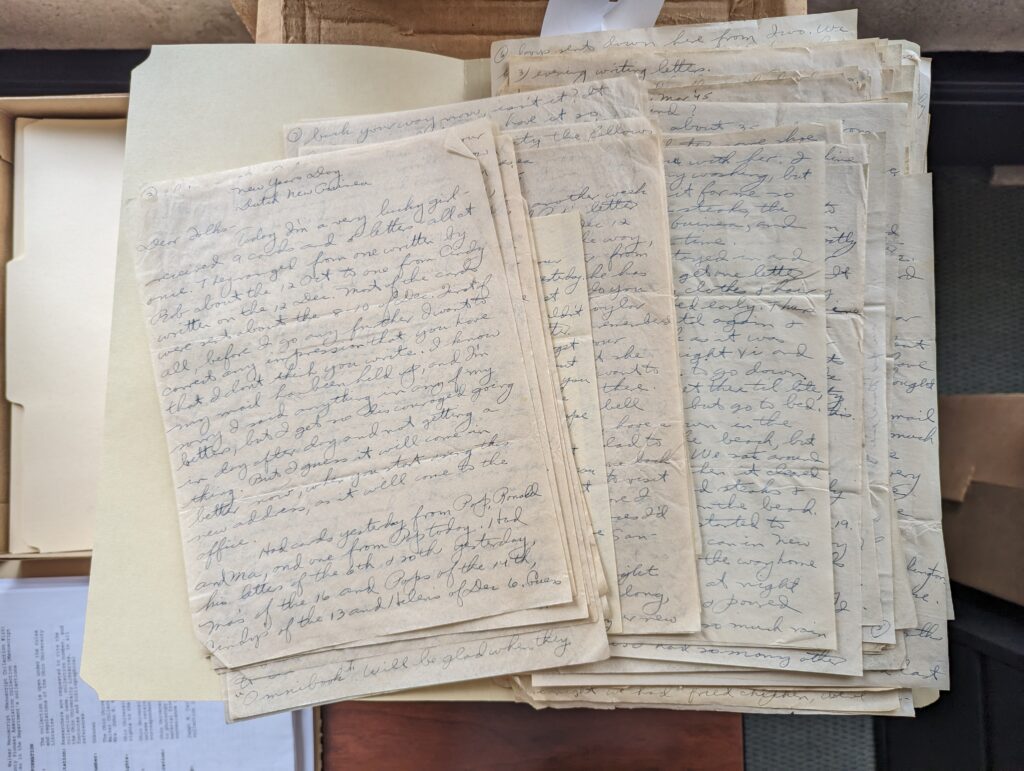
Entertainment is just one of the themes in Peirce’s correspondence from 1945. Being a cryptanalyst1, she couldn’t write about her work, so she writes about people she is meeting, what mail she is receiving, how she is spending her time while not at work, and about excursions to villages in New Guinea and to the city of Manila when she is in Luzon. All of her correspondence would have been checked by censors, limiting the type of information she could include. The collection provides a fascinating record of military life in the southwest Pacific during World War II.
Notes:
1 To read more about what a cryptanalyst did in World War II see the article, “Sharing the Burden: Women in Cryptology during World War II” by the National Security Agency history program.
Interested in more film streaming options for OHIO students and staff? Check out the Streaming Video libguide.